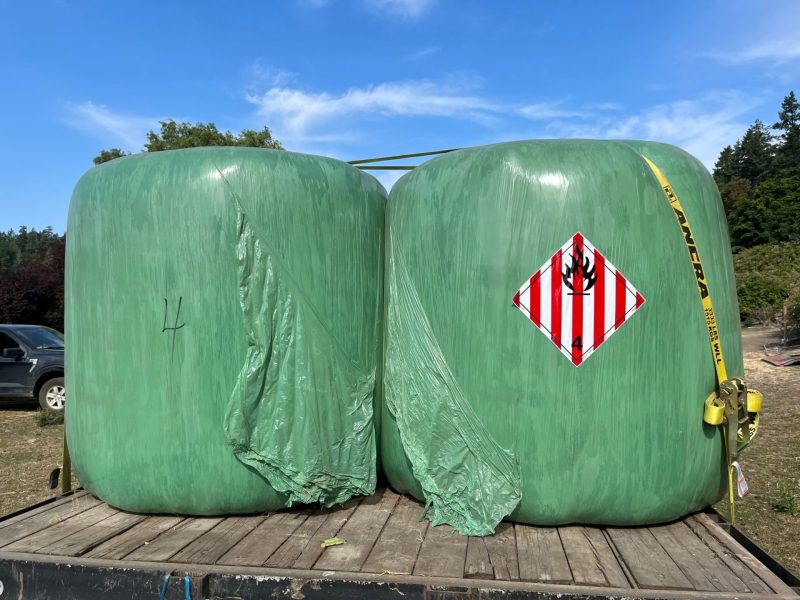An audit of protocols at BC Ferries means hay haulers must now label their loads as dangerous goods.
The audit by Transport Canada found that BC Ferries staff were not rigorously enforcing protocols regarding dangerous goods, including hay.
BC Ferries staff would often give farmers with a couple of bales on board a pass when it came to paperwork, but that’s changed following the federal audit.
All dry, baled hay transported via BC Ferries is considered dangerous and must be reported and labelled as such.
“Drivers must declare all dangerous goods at the terminal ticket booth, through an attendant, or vessel officer,” a recent advisory from BC Ferries states. “A dangerous goods shipping document is required for hay regardless of weight or number of bales.”
“Dangerous goods regulations do not apply to unbaled or loose hay used for feed during transport or as bedding in a livestock transport unit,” the advisory notes, while wet and contaminated hay is prohibited.
Any hay load greater than 1,100 pounds must be labelled as a dangerous good. BC Ferries staff are providing free placards to haulers to facilitate compliance.
“Hay must be secured within a closed vehicle, or the load must be completely covered with tarps to prevent random ignition,” BC Ferries notes.
However, the Crown corporation reports no recent ignition events involving hay.
“We don’t have any reports of hay fires over the past five years,” says Deborah Marshall, executive director, public affairs with BC Ferry Services Inc. “We put out the reminder to ensure the Transport Canada regulation was being consistently followed.”
Transport Canada did not respond to a request for comment prior to deadline.


 Kamloops decommissions farm irrigation
Kamloops decommissions farm irrigation